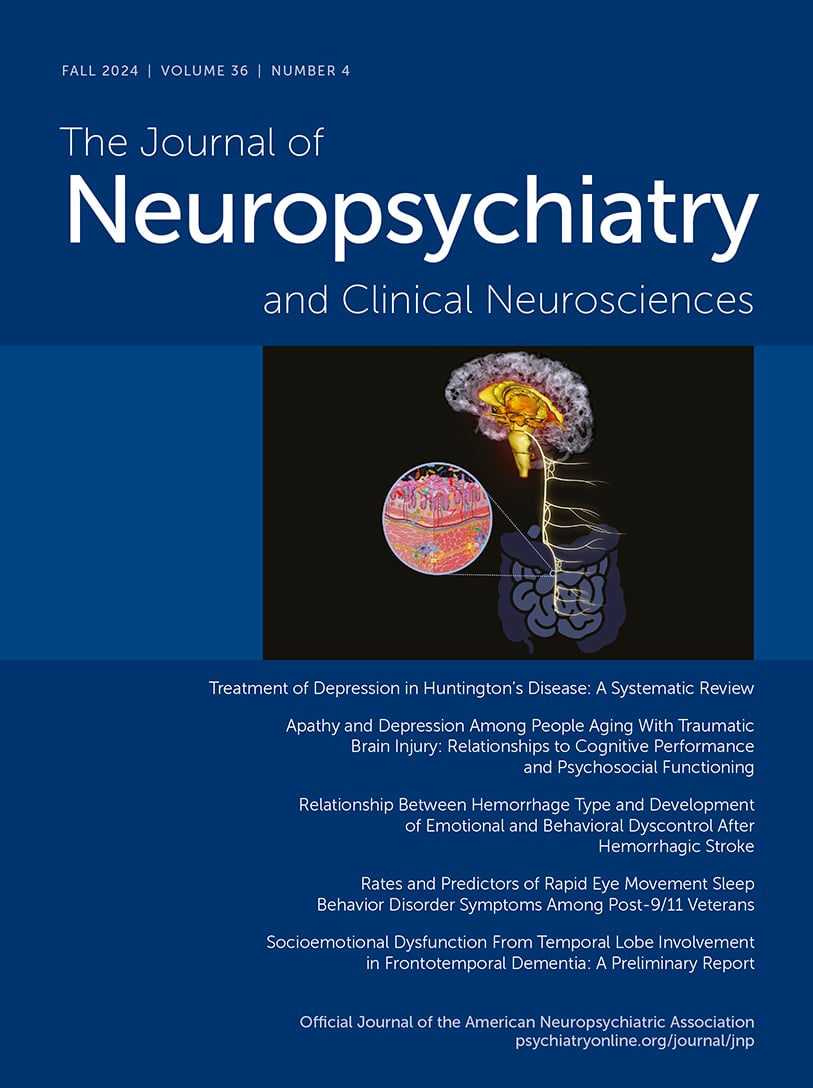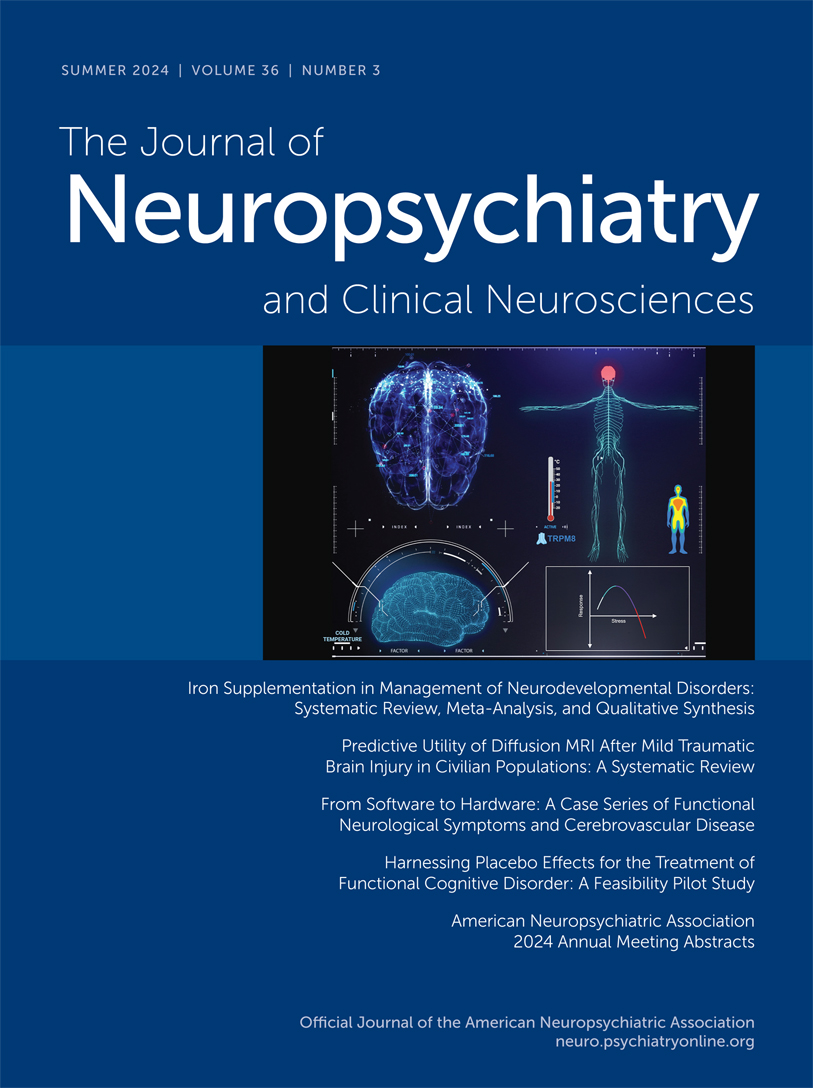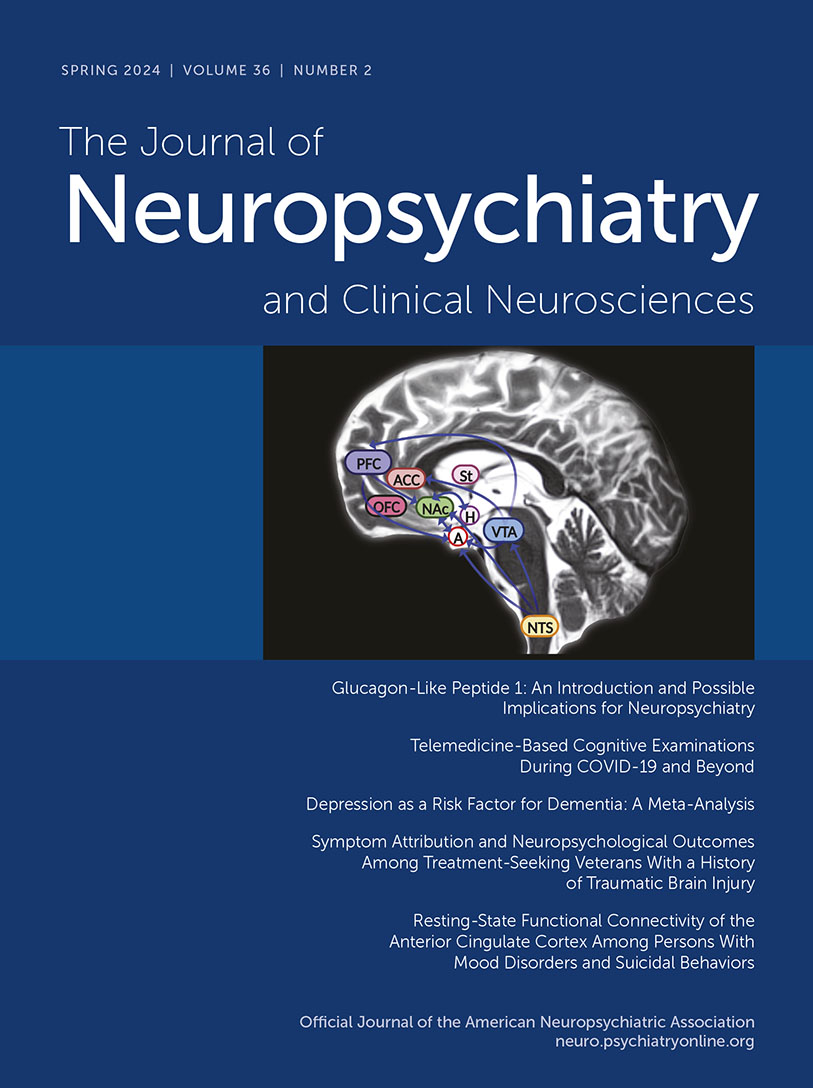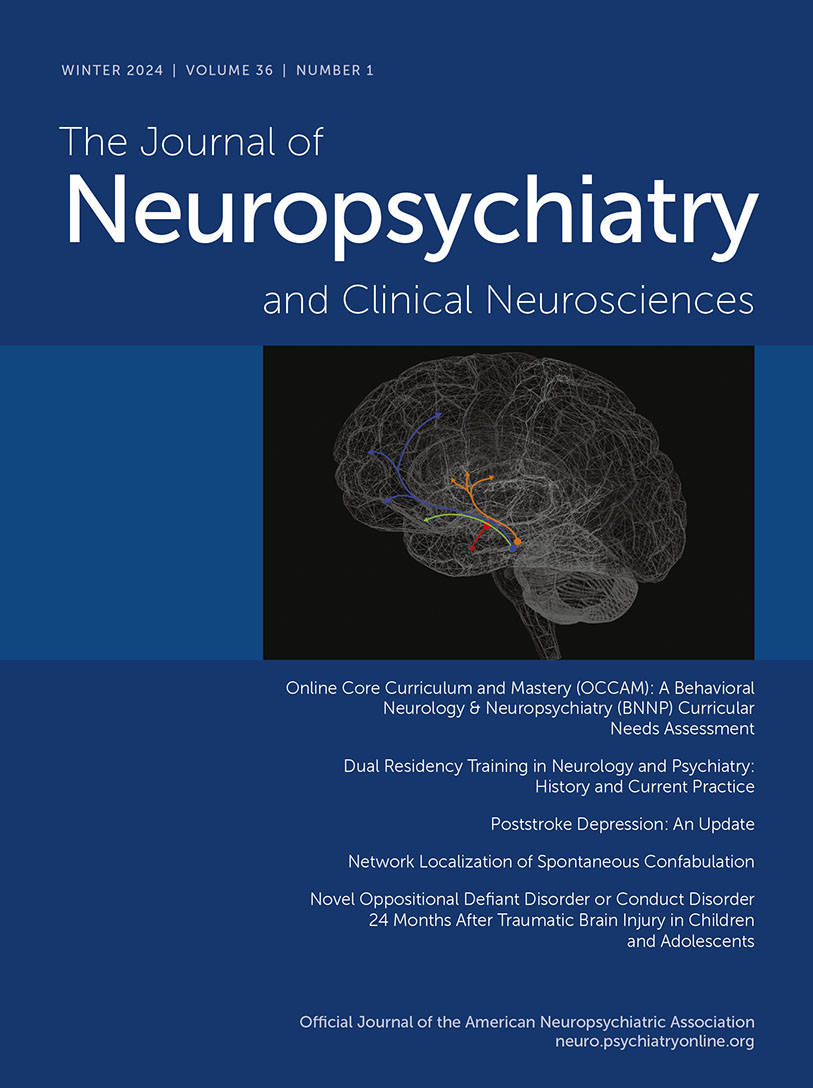The Journal of Neuropsychiatry and Clinical Neurosciences
- Volume 33
- Number 3
- July 2021
Windows to the Brain
Editorial
Special Articles
Publication date: 06 May 2021
Pages180–193Objective: The investigators aimed to provide clinical and MRI guidelines for determining when genetic workup should be considered in order to exclude hereditary leukoencephalopathies in affected patients with a psychiatric presentation. Methods: A ...
https://doi.org/10.1176/appi.neuropsych.20110294Publication date: 14 May 2021
Pages194–200Insomnia is the most common sleep disorder in the adult population. However, the definition of insomnia disorder has varied across major classification systems and changed over time. In the present study, the investigators traced the evolution of insomnia ...
https://doi.org/10.1176/appi.neuropsych.20080206Publication date: 14 May 2021
Pages201–209Psychiatric conditions are common and often disabling. Although great strides have been made in alleviating symptoms with pharmacotherapy and psychotherapeutic approaches, many patients continue to have severe disease burden despite the best therapies ...
https://doi.org/10.1176/appi.neuropsych.20100268Clinical and Research Reports
Publication date: 12 April 2021
Pages210–218Objective: The investigators aimed to describe delirium etiologies and clinical characteristics, as well as the relationship between COVID-19 and delirium severities, at baseline and follow-up after delirium improvement among patients with SARS-CoV-2 ...
https://doi.org/10.1176/appi.neuropsych.20100251Publication date: 24 March 2021
Pages219–224Objective: Little is known about the underlying neurophysiology of pediatric delirium. In adult patients, the sensitivity of EEG to clinical symptoms of delirium has been noted, with a slowing of background activity (alpha) and an increase in slow-wave ...
https://doi.org/10.1176/appi.neuropsych.20070184Publication date: 12 March 2021
Pages225–229Objective: The investigators examined the presence of disrupted sleep in acquired brain injury (ABI) and the utility of a mobile health program, MySleepScript, as an effective clinical tool to detect sleep disturbances. Methods: A cross-sectional pilot study ...
https://doi.org/10.1176/appi.neuropsych.20060172Case Report
Other Items of Interest
Communications and Updates
Past Issues
View Issues Archive
Vol. 36 | No. 4

Vol. 36 | No. 3

Vol. 36 | No. 2
